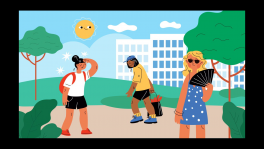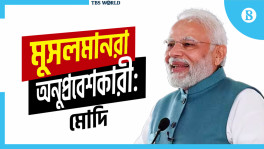Trudeau kicks off tough re-election campaign
Canadian Prime Minister Justin Trudeau faces an electorate more focused on the economy and affordability when it votes on Oct 21

Canadian Prime Minister Justin Trudeau, admired abroad for his progressive policies but damaged by scandals at home, kicks off a six-week re-election campaign on Wednesday with opinion polls suggesting his hold on power will be weakened.
Trudeau, who swept to office in November 2015 promising "sunny ways" and stressing the importance of gender equality, gay rights and the environment, faces an electorate more focused on the economy and affordability when it votes on Oct 21.
Trudeau will visit the Ottawa residence of Governor General Julie Payette, the acting head of state, to formally launch the race at 10 am (1400 GMT).
The 47-year-old married father of three, whose colourful socks and classic good looks are often splashed across the international media, may have history on his side. Not since 1935 has a Canadian prime minister who won a parliamentary majority in his first term been booted from office in the next election.
But Trudeau may not win enough seats to govern by himself after a series of missteps that called into question his leadership while cutting into his once sky-high popularity. That would leave him and his Liberal Party weakened, relying on opposition members of parliament to push through legislation.
A Nanos Research poll released on Tuesday showed the Liberals at 34.6% and the main opposition Conservatives, led by Andrew Scheer, at 30.7%. That margin would not be enough to guarantee a majority of seats in the House of Commons.
'Punish The Bums'
Senior Liberals say they are quietly confident of victory and predict Trudeau will campaign much more effectively than Scheer, 40, who is fighting his first election as Conservative leader.
But Canadian campaigns can produce major surprises. The Liberals trailed in third place when the 2015 election was called but steadily improved to pull off an outright victory.
"This is not a 'Throw the bums out' election. This is a 'Punish the bums' election," said Nik Nanos, head of Nanos Research.
Trudeau's challenge is that he is running on his record rather than the uplifting message of hope and change that helped the Liberals attract record numbers of green, youth and aboriginal voters in 2015.
Since then, Trudeau, the son of former Liberal Prime Minister Pierre Trudeau, has broken major campaign promises by scrapping plans to introduce voter reform and allowing budget deficits to mushroom. He also angered environmentalists by buying an oil pipeline to ensure crude exports could increase.
"For average Canadians, the key takeaway ... is that Justin Trudeau is not an exception, he's like other politicians," said Nanos.
Liberals, however, cite near-record low jobless numbers, booming growth and lower levels of poverty as grounds for re-election.
"(We) have delivered for Canadians for four years in a way that is concrete and measurable," said a senior party official.
World Is Watching
Although rivals may dismiss Trudeau's achievements, diplomats in allied countries say his focus on feminism, the environment and the need for multilateral organizations is important at a time when populism is on the rise and the United States seems intent on shrinking its global ambitions.
"We are paying very close attention. What will it mean if one of the few remaining progressive leaders is defeated?" said an official at one major Western embassy in Ottawa.
The worst moment of Trudeau's tenure came in February, when former Justice Minister Jody Wilson-Raybould accused the prime minister and top officials of inappropriately pressuring her to ensure that construction firm SNC-Lavalin Group Inc avoid a trial on corruption charges.
Last month, a top watchdog ruled the prime minister and his team had indeed breached ethics rules.
Trudeau also raised eyebrows when he admitted he had no idea Wilson-Raybould was unhappy, prompting questions about how involved he was in the day-to-day running of the country.
Scheer had surged after the SNC-Lavalin affair, but he appears to be struggling in Ontario, the most populous of Canada's 10 provinces, where a conservative premier is pushing through unpopular spending cuts.
Major planks of the Liberal platform will include measures to address cellphone and internet bills and a limited expansion to the universal healthcare system to cover part of the cost of prescription drugs, say party insiders.
Scheer promises to halt what he calls unsustainable government spending, saying in a video last week: "We have a plan for a government that lives within its means so we can put more money in your pocket."


 Keep updated, follow The Business Standard's Google news channel
Keep updated, follow The Business Standard's Google news channel
















